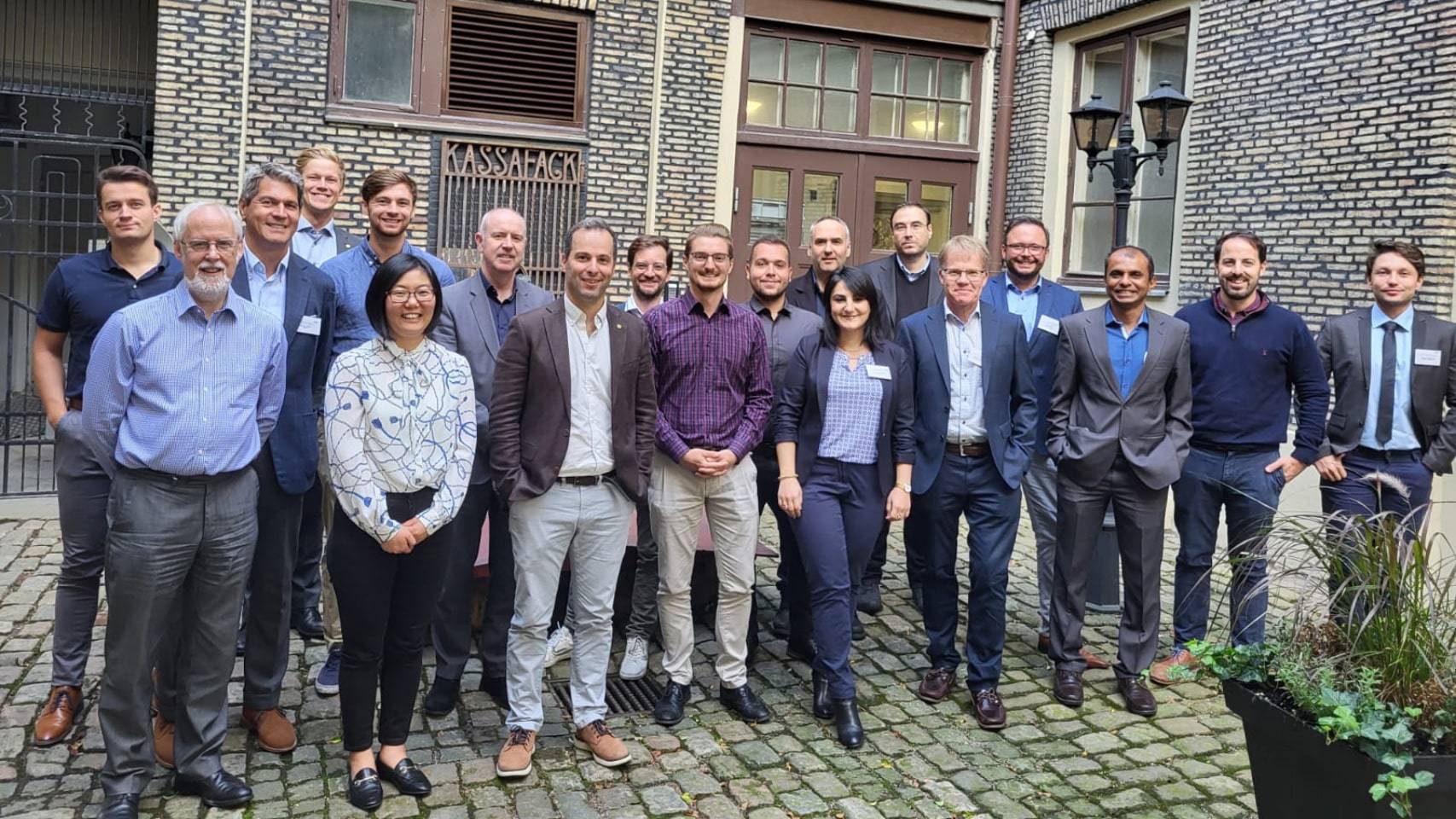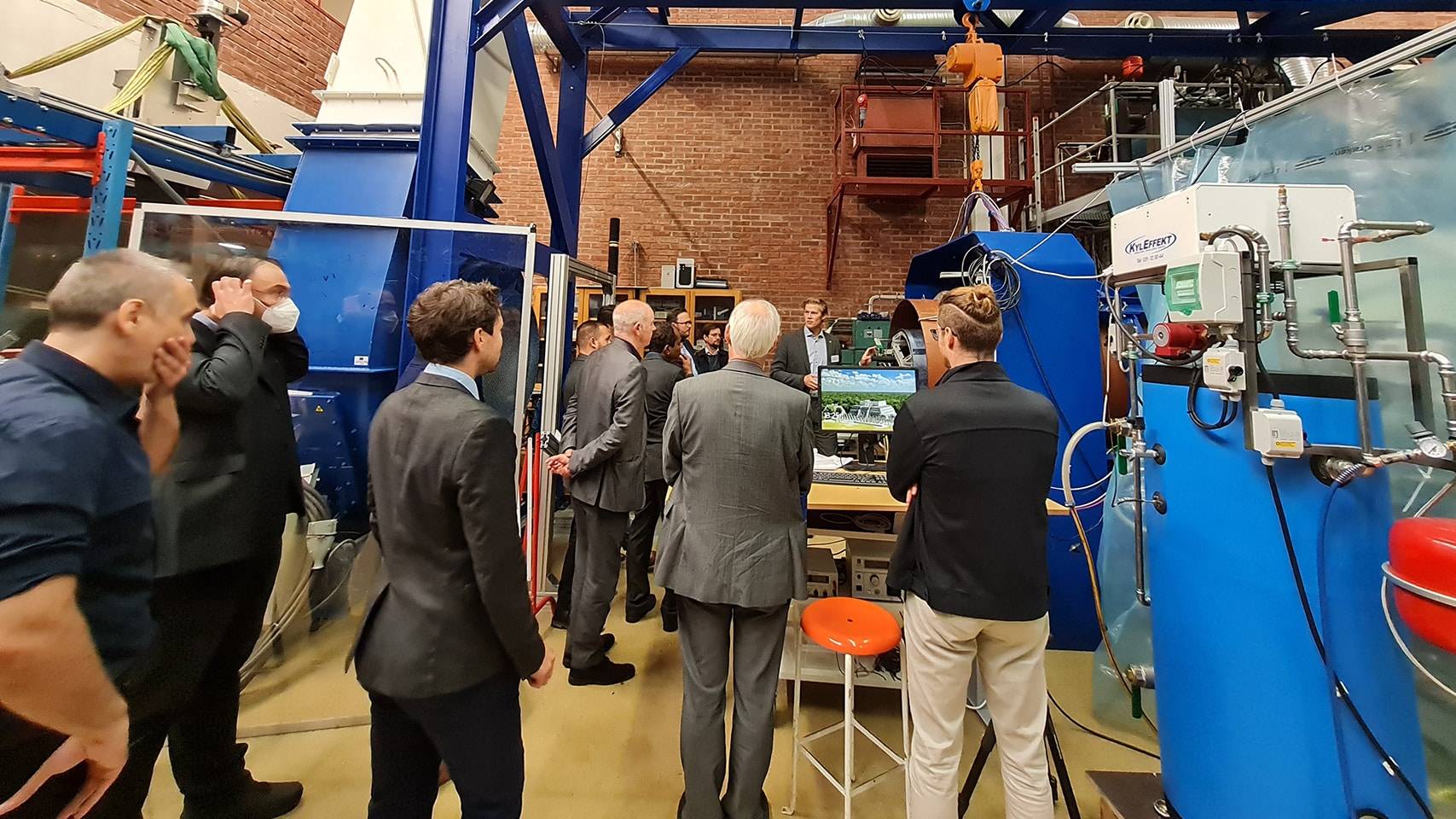Successful Kick-Off for MINIMAL Project: Advancing Aviation Sustainability
Chalmers University, Sweden
12-13.09.2022
The MINIMAL project, an ambitious initiative aimed at revolutionizing aviation sustainability, kicked off its activities with a two-day hybrid meeting, at the new Chalmers facility at Göteburg, Sweden.
Opening Session
MINIMAL project coordinator Assco. Prof. Carlos Xisto welcomed the consortium partners and provided a comprehensive overview of MINIMAL’s objectives, emphasizing its connection to the H2020 ULTIMATE project, and introduced the esteemed Chalmers University team. Partners then engaged in a roundtable presentation and introduced themselves. Leonidas Siozos-Rousoulis, the EC Officer, discussed CINEA’s role in supporting EU-funded projects.
Background Presentations
The session included presentations on the background of the MINIMAL project, including insights into CINEA’s role in supporting EU-funded projects and lessons learned from H2020 ULTIMATE. The Climate Impact of Aviation was explored, emphasizing the need for sustainable pathways to mitigate emissions. Arne Seitz from BHL delivered an insightful presentation, providing intricate details on the Composite Cycle Engine – a groundbreaking technology from the ULTIMATE project that will be advanced in MINIMAL. This was followed by a detailed presentation of the impact of climate change on the aviation industry by Assist. Prof. Feijia Yin from TU Delft.
Work Package Presentations: Advancing MINIMAL’s mission
WP1 Climate Impact – Feijia Yin (TU Delft)
WP1 focuses on quantifying the climate impact of novel engine configurations and alternative fuels. Fleet modelling, emission inventories, and climate sensitivity studies are among the activities planned to achieve the project goals. Notably, the investigation into contrail formation for non-conventional fuels and propulsion systems will also be a key facet of this work package.
WP2 NOx Reduction with Free-Piston Hydrogen HCCI – Andrew Rolt (CU)
This work package aims to mature opposed-piston core hydrogen combustion technology to TRL3, focusing on NOx reduction. Experimental validation and modelling of combustion processes are integral components of this effort.
WP3 Thermal Management – Isak Jonsson (Chalmers)
WP3 focuses on developing conceptual design tools for heat management components and maturing LH2 enhanced intercooling concepts to TRL3.
WP4 Integration and Whole Engine Design Studies – Arne Seitz (BHL)
The overall aim of the WP4 team is to optimize the MINIMAL engine technology concepts for minimum climate impact. To achieve this, the team will model aircraft design and performance, and optimize powerplant technology scenarios and NOx emission characteristics.
WP5 Dissemination and Exploitation – Anders Lundbladh (GKN) and Anna Yenokyan (ARTTIC)
Strategies to integrate MINIMAL into global efforts to reduce aviation’s climate impact were presented. Key activities include creating a project identity, conducting public workshops, and managing intellectual property with the support of ARTTIC Innovation.
WP6 Project Management – Anna Yenokyan (ARTTIC)
The project management team outlined key milestones, financial reporting, and tools to be utilized for efficient communication. Changes in project management within Horizon Europe were highlighted, including updates on reporting methods and invoicing.
Part 4: Summary & Follow-up
Carlos Xisto concluded the meeting by summarizing key discussions, emphasizing EC expectations, lessons from ULTIMATE, interdependencies between work packages, and upcoming deliverables.
The MINIMAL project has set a robust foundation for collaborative efforts to address aviation’s environmental impact, aligning with Horizon Europe’s goals for 2050. As work progresses, the consortium aims to contribute ground-breaking solutions towards a more sustainable aviation industry.


